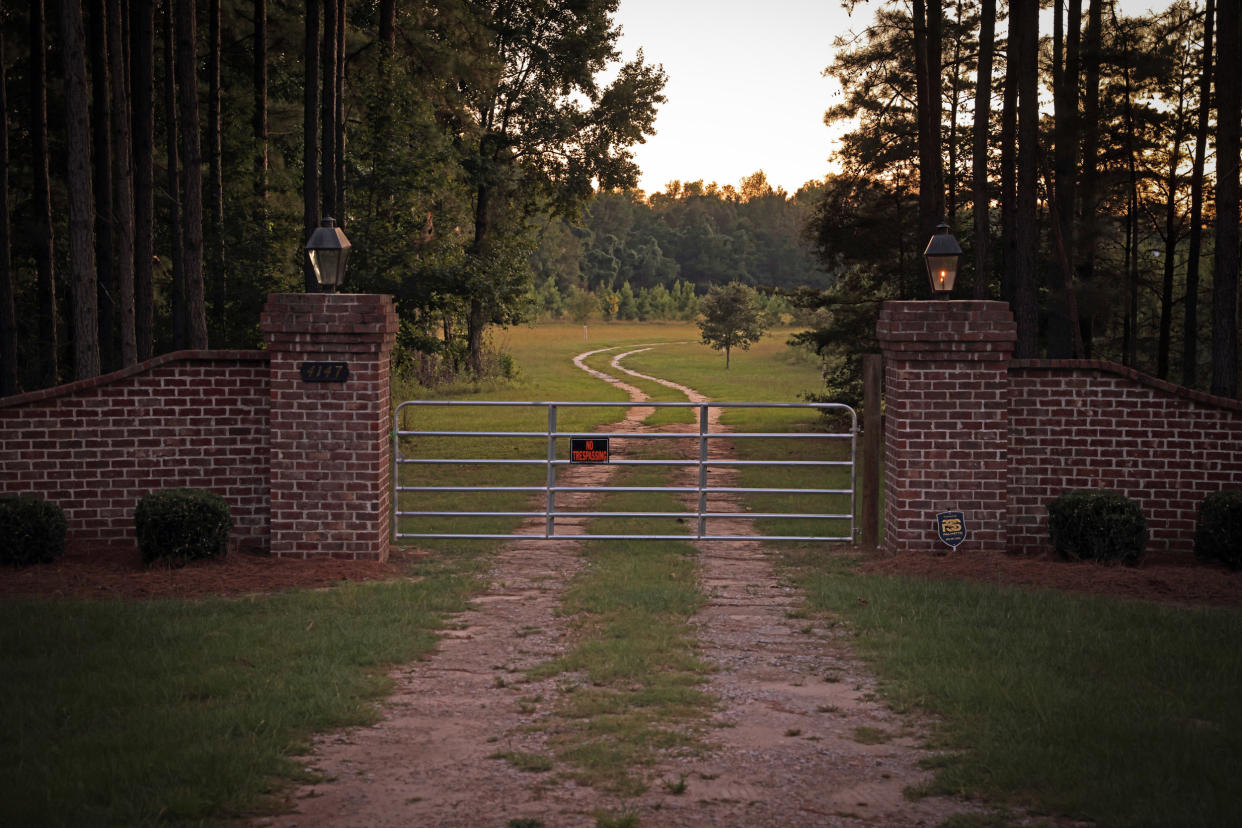Jury in Murdaugh murder trial will get to visit property where wife and son were killed
The defense in the double murder trial of Alex Murdaugh rested its case Monday afternoon following testimony over several days from more than a dozen witnesses, including the defendant himself, laying the groundwork for closing arguments potentially later this week.
But before they move to deliberations, the jurors will be allowed to walk through the crime scene where the former South Carolina lawyer's wife and younger son were killed. Earlier Monday, Circuit Judge Clifton Newman ruled in favor of the defense team's request for a "jury view" field trip to help jurors better visualize the testimony.
Defense attorney Richard "Dick" Harpootlian said he wants the jury to see the family's rural hunting lodge property known as Moselle, where the bodies of Margaret, 52, and Paul, 22, were found near outdoor kennels on June 7, 2021.
The distance between the home and the kennels, and the length of time required to travel across the more than 1,700-acre property, have been key discussions surrounding Murdaugh's actions on that night, and whether he had the time and the opportunity to fatally shoot his wife and son.
"You can't really appreciate the spatial issues without actually seeing them," Harpootlian said.
Lead prosecutor Creighton Waters objected to the request and said he was hesitant for the jury to visit the property now because it looks different, including trees separating the home and the kennels that have since grown taller and thicker.

Newman said he would advise the jury before it goes to the scene that "certain things may not be the same as they were two years ago."
He also said law enforcement would escort the jury after Harpootlian alerted him to the presence of intruders at the property, which is about 20 miles from the Colleton County courthouse where Murdaugh's trial is taking place.
"There were literally dozens of people at Moselle last weekend trespassing to get selfies in front of the feed room. One of the most distasteful things I've ever seen," Harpootlian said, adding, "I don't want the jury to be influenced by crazy paparazzi."
Newman did not immediately determine when the jury would get to see the family's property but said it would be sometime after the prosecution wraps up the next phase of the trial. The prosecution is expected to begin calling its rebuttal witnesses Tuesday morning.
Legal experts in South Carolina say a judge can allow the jury to tour a pertinent property if one of the parties requests it and if there have been no material alterations to the scene.
"I don't believe it is commonly requested," said Dennis Bolt, a retired attorney in Columbia who has served on cases with members of Murdaugh's defense team. "Personally, I can't recall ever requesting it unless there was something unique and felt that the jury could not fully grasp it without visiting the scene."
Jurors have visited crime scenes in other high-profile trials. Most notably, the 12 jurors and nine alternates in the 1995 double murder trial of O.J. Simpson toured the affluent Los Angeles neighborhood where the disgraced football star and his ex-wife, Nicole Brown Simpson, had lived. (Simpson was later found not guilty in the murders of Brown Simpson and her friend Ron Goldman.)
Last year, jurors in the sentencing phase of the trial of the Parkland, Florida, school shooter walked through the high school where the massacre occurred in order to retrace his steps.
Murdaugh's trial continued Monday with the defense calling its final witnesses. They included Murdaugh's younger brother, John Marvin Murdaugh, who testified about the tight bond Murdaugh had with his wife and children.
"It was a great relationship. Anything that the boys were doing, Alex wanted to do," John Marvin Murdaugh said. "The boys always came first to him."
Of his brother's almost three-decade marriage to Margaret, he testified that "it was a great relationship. All marriages, I'm sure, have hiccups here and there, but I'm telling you it was a good marriage."
But under cross-examination, John Marvin Murdaugh agreed that his brother had lied to investigators when he told them he was not at the kennels in the moments before his wife and son were killed, despite video evidence later undermining his alibi.
Last week, jurors heard emotional testimony from Murdaugh, 54, the scion of a well-connected legal family in South Carolina’s Lowcountry.
"I would never hurt Maggie. I would never hurt Paul," he said, taking the stand in his own defense.
Prosecutors contend Murdaugh was under immense financial pressure and stole millions of dollars from his then-law firm and clients, in part to feed a longtime drug addiction, and that he killed his wife and son to gain sympathy before being exposed.
On cross-examination, Waters walked the jury through the times Murdaugh had lied to people, including about his financial crimes and a roadside shooting three months after the murders in which he supposedly tried to have himself killed so that his older son, Buster, could collect on his multimillion-dollar life insurance policy.
"When accountability is at your door, Mr. Murdaugh, bad things happen," Waters said.
"For the first time in your life of privilege and prominence and wealth, when you were facing accountability, each time suddenly you became a victim," he added.
Murdaugh disagreed with that characterization, and said he was affected by his drug addiction and not being in the right state of mind around the time of the suicide-for-hire scheme.
If found guilty of the double murders, Murdaugh could face 30 years to life in prison without parole. A separate charge, two counts of possession of a weapon during a violent crime, could carry five more years in prison.
